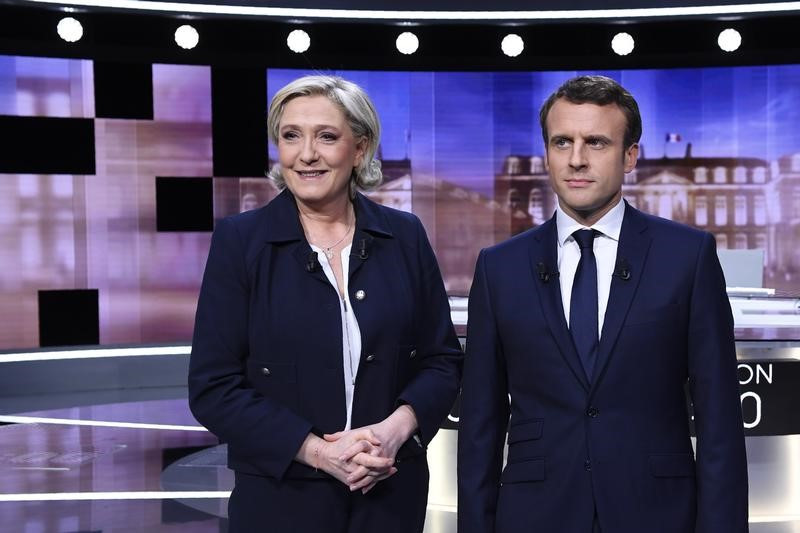How France Rules its Minorities With Double Standards?

The incident on Rue d'Enghien in central Paris, which took place on Friday, December 23, and resulted in the death of 3 Kurds and the injury of others, revealed the double standards of the French state in dealing with crimes that occur on its soil.
It revealed the vast difference in the description of these events between what is terrorist and what is criminal, according to the criminal's identity and cultural background.
Although the perpetrator of the incident (69 years old) admitted during the investigations that his motives were racist while he has a racist criminal record known to all, this was not enough to push the French authorities to describe the crime as a "terrorist act" if the accused was a member of immigrant communities, sufficing that what happened was a criminal operation subject to criminal investigations like any other crime in the country.
This double-standard characterization has angered the Kurdish community in France, which has expressed its anger and condemnation while reinforcing the fears of minorities and immigrants in general, especially in light of the resurgence of the country's far-right again, as revealed by the recent general elections in which extremists made significant progress.
The incident took place near a Kurdish cultural center often frequented by the Turkish community in the tenth arrondissement of Paris, where a French citizen opened fire on a number of passers-by and caused serious injuries next to the three dead, while the French security forces arrested him, but the Public Prosecution ordered his transfer to a psychiatric hospital affiliated with the police because his health condition does not allow him to be detained inside police detention centers.
This is what you get when you shelter terrorists in your country. #Paris pic.twitter.com/pVcd4R6Thl
— Clash Report (@clashreport) December 24, 2022
Angry Demonstrations
Investigations indicated that the two men killed in the attack were Abdurrahman Kizil, an ordinary Kurdish citizen who regularly frequents the Kurdish Cultural Center, Mir Perwer, a Kurdish artist and political refugee, and Emine Kara, who was a leader in the Kurdish women's movement in France.
The attack greatly angered the Kurdish community, which expressed this in the form of protests that camped on the Republic Square in the center of the French capital, while some protesters resorted to violence, smashing the facades of some shops and setting fire to the streets. Confrontations broke out between demonstrators and the French police, resulting in injuries and arrests among the protesters.
Kurdish activists believe that the judicial, political, and even media handling of the incident was not as required, as while the attack had the elements of a terrorist operation, the French response to it was less than it should be, while others accused the French security services of not doing enough to prevent the shooting.
The Kurdish community and a number of its supporters from the French left had organized a demonstration on Saturday, December 24, 2022, in central Paris, along with another march in Marseille in which about 1,500 people participated, before it turned into a hit-and-run between protesters and the police, which resulted in the injury of 31 police members, and the arrest of 11 people participating in those demonstrations.
This crime comes almost 10 years after the murder of 3 Kurdish activists in the 10th arrondissement of Paris, the same department that witnessed the last incident, which some interpreted as difficult to be a coincidence, as the founder of the radical left-wing rebel France party, Jean-Luc Mélenchon, and the Kurdish Democratic Council went, which takes the incident out of its narrow criminal circle to other dimensions, perhaps political or racial.
Several injured after gunshots in #Paris . pic.twitter.com/WLGkM7ymLf
— Raajeev Chopra (@Raajeev_Chopra) December 23, 2022
Double Standards
In September 2020, an armed man attacked two people in front of the former headquarters of the satirical weekly Charlie Hebdo in Paris, seriously injuring them. Almost five months earlier, a Sudanese refugee killed two people with a knife in the southeastern town of Romans-sur-Isère. In both incidents, less than minutes after they were revealed and in anticipation of investigations, the French authorities came out to confirm that the two operations were "terrorists."
Although the two incidents and many other crimes that preceded them included many details that require waiting for investigations before revealing their nature, the authorities there were quick to call them terrorists to ignite the French street, in complete contrast to last Friday's crime, despite the attacker's admission of his racist motives in the investigation.
But the incident was described—as of this writing—as a "crime" and not a "terrorist attack" as is the case in the crimes immigrants before that committed.
The French duplicity in describing such crimes reflects the crude racism that hangs over the ruling French mentality, which is mostly subject to the dictates and pressures of populists, especially in the last seven years since 2015 until today.
This ultimately produced a racist discourse par excellence that the country may not have seen in many decades despite its shameful record spanning hundreds of years.
This populist, fascist rhetoric was expressed by French President Emmanuel Macron directly, clearly, and without any equivocation when he answered the question of the L'Express reporter: "Do you think that being a white man is a privilege?" during an interview on December 22, 2020.
Macron said: "This is a fact, we do not choose it, and I did not choose it, and I notice it in our society, being a white man creates easier conditions for me to get my job and get housing, compared to being a black man Or Asian or Maghreb, so being a white man can be considered a privilege."
Macron's answer and the statements of far-right leaders in France, led by Marine Le Pen, carried a qualitative leap in the trajectory of racist hate speech and the systematic targeting of minorities and immigrants based on the ugly populist-nationalist base "white man superiority" and considering him a first-class citizen compared to other inferior citizens of color.

Far Right Rise
Despite the defeat of National Front leader Marine Le Pen, the far-right candidate, in the last French presidential elections in April, she succeeded in obtaining 41.8% of the vote against 58.2% obtained by her rival, Emmanuel Macron.
The results of the recent elections for the extreme right are the best for this trend despite the defeat, compared to the 2017 elections, in which Le Pen won 33.9% of the votes while Macron received 66%.
This meant that she succeeded in reducing the difference between her and her rival from 32 points to only 16 points, while in the 2012 elections, the populist candidate was unable to reach the second round of the elections, content with third place, after obtaining 17.90% of the French votes.
An objective reading of the results achieved by the extreme right in the recent elections indicates that populism hangs over the mood of almost half of the French people, a populism that places immigrants, minorities, and people of color as legitimate targets for systematic political, economic, social and media targeting.
The past few days had revealed the weakness of this current and its supporters when they launched a racist attack against a number of players of the French football team, who are black and the children and grandchildren of immigrants, after losing the final match of the World Cup in Qatar 2022 to Argentina, which was crowned the title, where populists raised racist slogans such as "Go home," to confirm that famous phrase that says: "If you win, you are French, but if you lose, you are an immigrant and a refugee."











